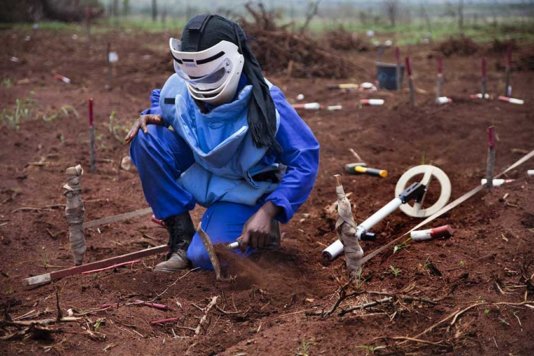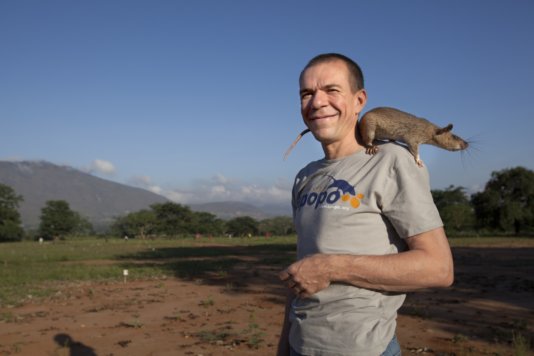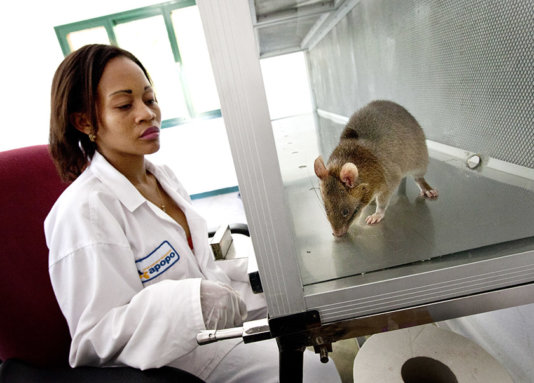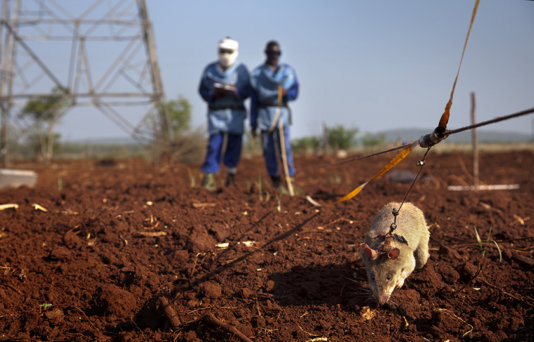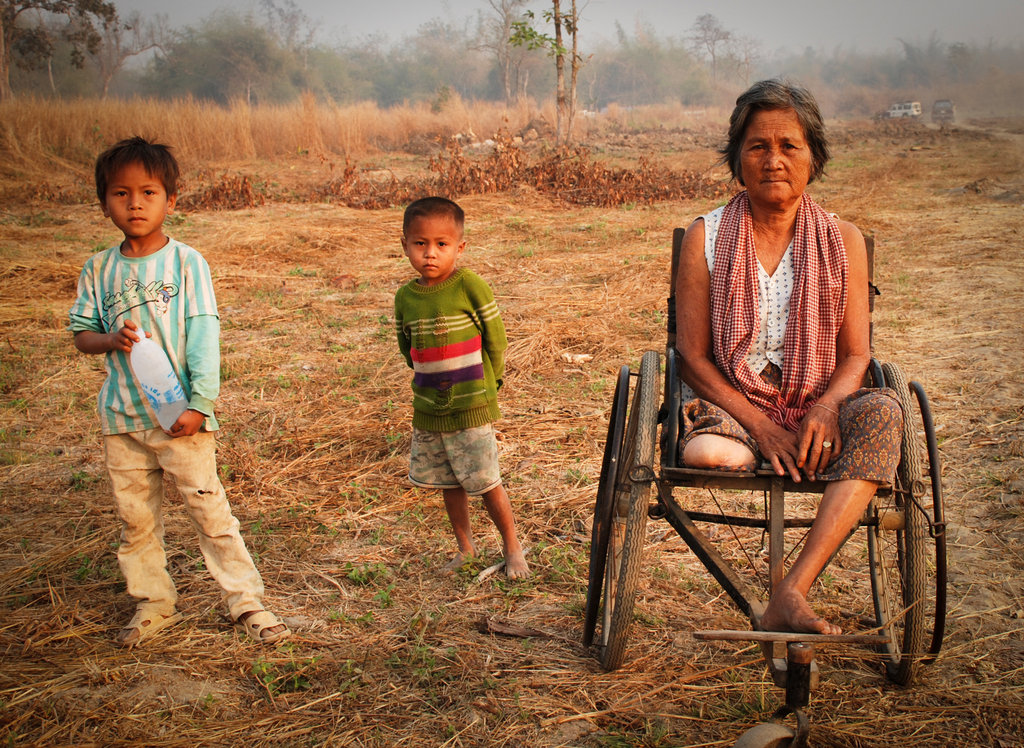- About
- Topics
- Picks
- Audio
- Story
- In-Depth
- Opinion
- News
- Donate
- Signup for our newsletterOur Editors' Best Picks.Send
Read, Debate: Engage.
| September 08, 2015 | |
|---|---|
| topic: | Peace and Reconciliation |
| tags: | #APOPO, #cambodian, #land mines, #rats, #Tanzania, #Tuberculosis |
| located: | Tanzania |
| by: | Bob Koigi |
The African giant pouched rats, which weighs two pounds and approximately a foot long, have demonstrated their olfactory prowess due to their prodigious sense of smell that rivals that of dogs.
APOPO the organization behind the project, and founded by Bart Weetjens says the elite rats have managed to release over 24 million square meters of land that were previously minefields in six countries, while detecting 8400 Tuberculosis patients who were initially misdiagnosed by conventional medicine.
Known as HeroRats, they begin training when they are five to six weeks at APOPO’s headquarters in Tanzania, before being deployed for specific assignments in the country and beyond. Each animal cost $6,900 to train through a process known as operant conditionning which rewards the rats for every successful target smell they locate. The rewards include bananas and peanuts.
The rodents have proven their prowess in countries laden with mines from Mozambique, Angola, Vietnam to Cambodia. “Rats are usually not considered as a detection technology that can save lives. They have traditionally been thought of as pests, stupid and dirty animals which carry plagues.Our results so far have proven otherwise - they are actually very intelligent animals, and they provide an innovative solution for some of the greatest humanitarian problems,” said Ragna Frans a communication official at APOPO.
Their superior detection trait lies in the fact that while human detectors will stop at every metal they detect like an old coin or a bolt, the rats’ sharp sense of smell allows them to only smell the ingredients of a specific explosive like TNT. Once they detect, the rats scratch the surface, signaling their trainers. The manual deminers move in with their metal detectors and excavation tools, excavating around the mine, and searching the surrounding area for additional mines. Despite weighing two pounds, the rats are too small to trigger an explosion.
So fast in detection are the rats that one trained rat can search approximately 200 square meters in 20 minutes. The same distance would take a human deminer with a metal detector close to four days. In the Southeast Asian nation of Cambodia which is riddled with landmines following decades of war, exploding landmines have killed more than 64,000 unsuspecting Cambodians, and created 25,000 amputees making the country the highest in landmine amputees per capita globally according to the Landmine and Cluster Munition Monitor. Still four to six million landmines exist. But the HeroRats have been the knight in shining armour. Cambodian Mine Action Centre which has been working with APOPO has cleared 2.6 million landmines and unexploded ordnance for the last twenty years reducing casualty rates to a record low of 134 in 2013 from 3,000 over 3,000 in 1996.
In medicine the rats have proven effective in the rapid detection of Tuberculosis, a disease that kills 1.5 million people every year in the world. The rats are provided with various samples of sputum. Sniffing through the samples the rat only stops and rubs its legs when it detects a sample with TB causing bacteria. For accuracy researchers repeat the process with different rat. The rats have addressed one of the conventional bottlenecks in TB detection where one lab technician is only able to screen 20 samples a day. In contrast one HeroRat can evaluate 100 samples in 20 minutes, the equivalence of two day’s work for a lab technician. “APOPO’s TB detection rats have detected over 8400 patients that were initially missed by conventional microscopy, helping them to start medical treatment after all. Our TB program is a step towards addressing the millions of TB cases that go undetected, can lead to death and infection of other people,” said Ragna.
In order to validate the TB detection rat technology platform for use by independent entities in several other high-TB burden countries, APOPO is now seeking accreditation with the World Health Organization through submission of key clinical studies, with the institution hoping to prove that the detection rat technology has added value compared to existing diagnostics through accuracy, cost-effectiveness, ease of use, and better clinical outcomes for patients.
By copying the embed code below, you agree to adhere to our republishing guidelines.
